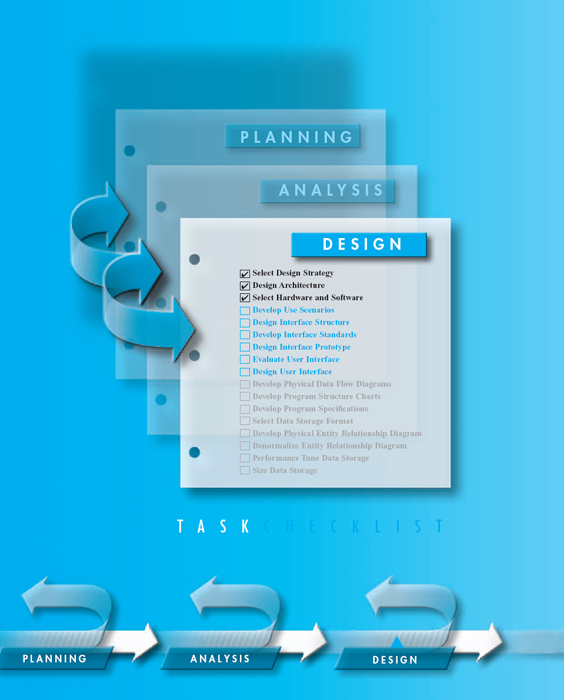
CHAPTER 9
USER INTERFACE DESIGN
A user interface is the part of the system with which the users interact. It includes the screen displays that provide navigation through the system, the screens and forms that capture data, and the reports that the system produces (whether on paper, on the Web, or via some other media). This chapter introduces the basic principles and processes of interface design and discusses how to design the interface structure and standards.
OBJECTIVES
- Understand several fundamental user interface design principles.
- Understand the process of user interface design.
- Understand how to design the user interface structure.
- Understand how to design the user interface standards.
- Be able to design a user interface.
CHAPTER OUTLINE
Introduction
Principles for User Interface Design
Layout
Content Awareness
Aesthetics
User Experience
Consistency
Minimize User Effort
User Interface Design Process
Use Scenario Development
Interface Structure Design
Interface Standards Design
Interface Design Prototyping
Interface Evaluation
Navigation Design
Basic Principles
Types of Navigation Controls
Messages
Input Design
Basic Principles
Types of Inputs
Input Validation
Output Design
Basic Principles
Types of Outputs
Media
Applying the Concepts at Tune Source
Use Scenario Development
Interface Structure Design
Interface Standards Design
Interface Template Design
Design Prototyping ...
Get Systems Analysis and Design, 4th Edition now with the O’Reilly learning platform.
O’Reilly members experience books, live events, courses curated by job role, and more from O’Reilly and nearly 200 top publishers.

